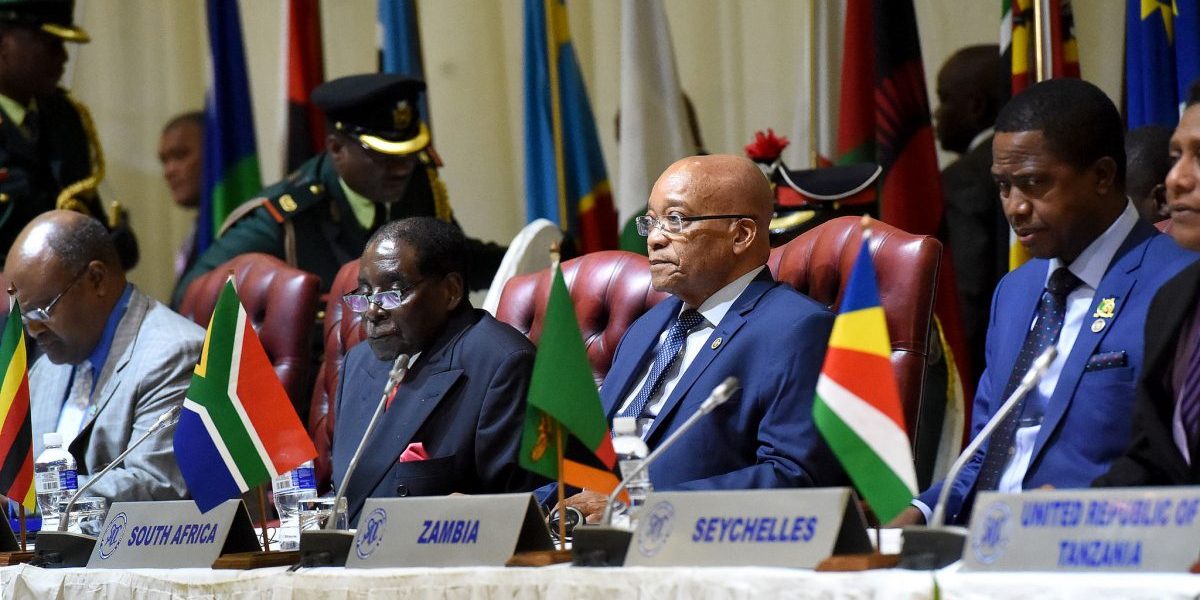FREE and fair are the crucial words for assessing the quality of elections. They denote the international standard for measuring credibility at the ballot box. But what they mean is often the subject of dispute, especially in Africa. All too often, election monitoring teams reach very different conclusions about the conduct of polls on this continent, with Western and African observers splitting on the verdict. Tragically, boycotts, enduring political acrimony and even civil wars follow.
Cote I’voire, Sierra Leone and Zimbabwe offer compelling evidence of the need both to change the conduct of elections and define a universal standard for judging them. On August 17, leaders of the Southern African Development Community took an important step in that direction when they adopted a code for elections in southern Africa.
The SADC Principles and Guidelines Governing Democratic Elections marks the first time that regional leaders have committed themselves to a set of rules for political contests. The guidelines share many points in common with the SADC Parliamentary Forum’s Norms and Standards, and therefore diminish – at least on paper – the potential for split verdicts between the two branches, a problem that occurred in Zimbabwe’s 2002 presidential poll.
Provisions
The charter states that citizens have the right to fully participate in the political process – to enjoy freedom of association, to vote and to run for office. Governments are obliged to ensure political tolerance, the independence of the judiciary and impartiality of electoral institutions. All political parties must have equal access to the state media; voters rolls should be up to date and open to public scrutiny; polling dates should be announced sufficiently in advance to allow all parties to participate fairly; campaign financing should be transparent for all parties; polling stations should be in neutral places; ballot counting should take place at voting stations; observer missions should be invited to monitor the period running up to an election and not merely the balloting; states should ensure impartial voter registration, create an environment for ‘free, fair and peaceful elections,’ and ensure constitutional guarantees of freedom and rights of citizens.
By offering a more detailed standard for judging elections, SADC leaders have removed the argument that international observers are somehow imposing alien rules. But the new code contains several worrying loopholes. Most importantly, SADC heads of state will only send an observer team if requested to do so by the country holding elections.
The new code also obliges all political parties to accept the election victor declared by the legally constituted national election authority. Thus, if an incumbent government manipulates the rules, the opposition has little legal recourse to contest the results.
The guidelines also leave a critical question unanswered: How much violence, denial of rights or other rule-bending is sufficient to judge an election illegitimate? In this, the upcoming parliamentary elections in Zimbabwe, expected in March 2005, provides a crucial test case. Government has closed all major independent newspapers, and state media only features fawning coverage of the ruling party’s rabid attacks on the opposition.
No longer by the book
In both the 2000 parliamentary elections and 2002 presidential elections, Zimbabwean police arrested dozens of opposition candidates and supporters while ruling party activists conducted a reign of terror. Farm workers were forced to attend all-night indoctrination sessions where they were beaten if they did not shout ruling-party slogans with sufficient zeal. Government failed to follow its own rules in making the voters roll available. Different identification standards were applied to people seeking to register in opposition strongholds than in areas supporting the government.
But governments in the region never mobilized their diplomats and intelligence agencies to examine what was really happening. Many election observers from the region came late, rarely left their hotels and accepted the flawed logic that accusations of violence leveled by government supporters, although far less frequent, somehow balanced out the larger body of evidence of orchestrated government violence. Governments in the region dismissed reports of atrocities from the media and non-governmental organisations.
With the independent media demolished and the courts systematically purged of politically disinterested jurists, local and international political observers express little hope that the March poll will be more credible than its two predecessors. Frustrated by prevailing conditions, the opposition Movement for Democratic Change has already indicated it will boycott.
Having adopted new standards, the SADC heads of state have done the easy part. The question now is whether they will enforce them.








